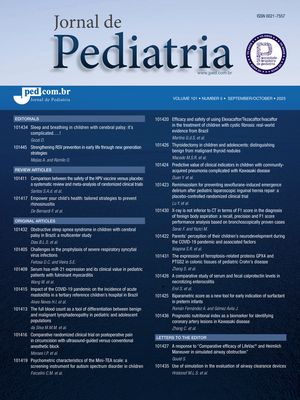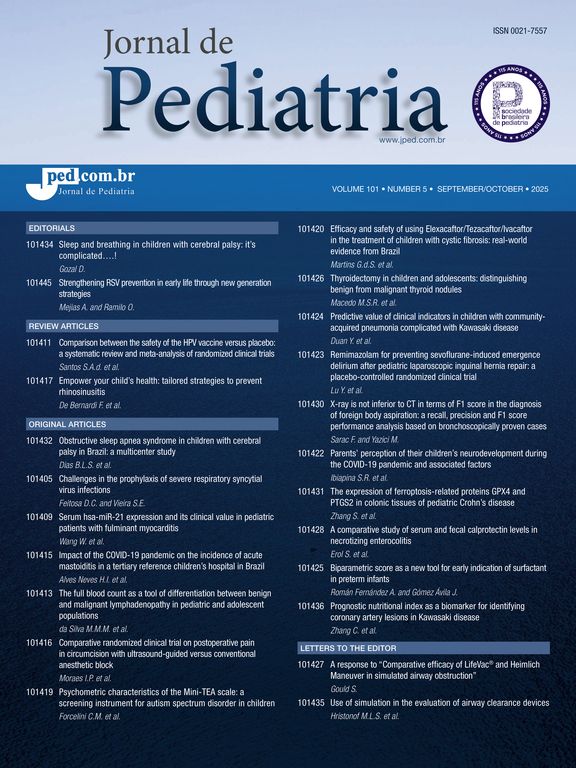
to determine how to select a child who requires in depth laboratory investigation, defining the most appropriate laboratory screening tests, and to detect the individual who requires immediate therapy, when fever is the main symptom presented by the child seen in an outpatient clinic, or at the physician's office. Additionally, this review aims at providing suggestions on how to deal with fever, and with the anxiety it causes.
Sourcesbibliographic review using Medline database and previously selected manuscripts.
Summary of the findingsfever may cause both negative and positive outcomes, none of major consequence. Age group, fever magnitude and duration, shivering, appetite decrease or behavioral changes (toxemia), and other localizing symptoms should be investigated through the patient's medical history. Laboratory screening tests should include complete blood count, erythrocyte sedimentation rate, C-reactive protein, urinalysis (white cells count and gram stain of the sediment), and in some cases, lumbar puncture and blood culture. The treatment should include antipyretic medications and, occasionally, physical methods (cool baths, sponging) in order to reduce discomfort caused by the fever.
Conclusionschildren with fever request both scientific expertise, as well as empathy from the pediatrician, so that they can receive individualized therapy.
quando a queixa febre é única ou preponderante, em criança atendida em consultório ou ambulatório, é recomedado selecionar aquelas que requerem investigação mais apurada, determinar os exames mais indicados para triagem, detectar os casos que exigem intervenção imediata e saber lidar com o sintoma febre e a ansiedade que ela provoca.
Fontes de dadoslevantamento bibliográfico no Medline e em artigos previamente selecionados por sua importância.
Síntese de dadosa febre pode acarretar alguns efeitos danosos e outros benéficos, nenhum de grande monta. A anamnese deve enfocar faixa etária, intensidade da febre, tremores de frio, alterações evidentes do apetite e do comportamento (estado infeccioso), outros sintomas localizatórios e duração do episódio febril. Os exames de triagem são hemograma, VHS, proteína C-reativa, exame de urina (leucócitos e bacterioscópico), eventualmente liquor e hemocultura. O tratamento da febre pode ser feito com antitérmicos, às vezes, completado com meios físicos (banho, compressas) para reduzir o desconforto.
Conclusãoa criança com febre exige do pediatra conhecimentos técnicos que se aplicam a todos os casos, e empatia, para individualizar a conduta.








